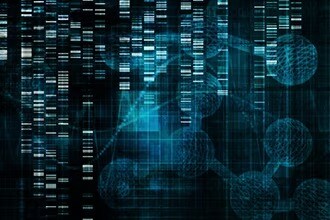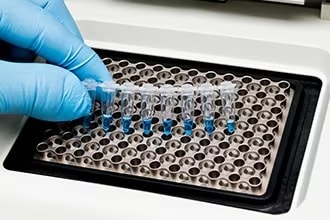Genomics, Genetics
Genomics is an academic discipline that studies the structure (base sequence) and function of the genome. The term genome refers to all the genetic information in a cell and genomics studies the base sequence of this genetic information. Genomics elucidates genetic mechanisms by identifying the genes involved in a given mechanism and analyzing the functions and interactions of those genes.

CRISPR/Cas9, the genome editing technology that won the Nobel Prize in Chemistry in 2020, is easier to handle than conventional gene transfer methods and is superior in terms of efficiency and cost. For this reason, genome editing is being actively studied for practical use in various fields, such as medicine, food, and even chemical synthesis by microorganisms. Genome editing begins with obtaining a mutant individual in which a desired mutation is introduced into the target gene, but it is very time-consuming to find the desired mutant individual among those that have been mutated. There are several methods for selection, such as DNA sequencing and Heteroduplex Mobility Assay (HMA) .

Species and even individuals have unique genetic information. By analyzing and comparing the unique and standards gene sequences of the species or the individuals, genetic differences can be detected. Conversely, the differences are used to identify the species or the individuals.

Ampdirect technology eliminates the need for nucleic acid purification and enables simple and rapid PCR. In general, blood and animal and plant tissues contain large amounts of substances that inhibit enzyme reactions, so it is necessary to purify nucleic acids from samples for analysis using PCR and other methods. Ampdirect PCR buffer suppresses the effects of PCR inhibitors in the sample, allowing PCR to be performed without purification of nucleic acids from various samples including blood, animal and plant tissues, and SDS.



